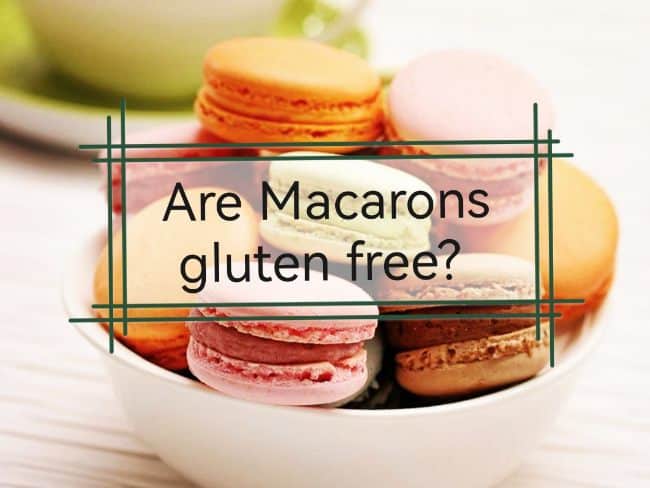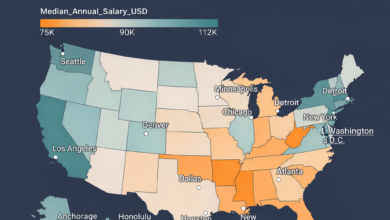Are Macarons Gluten-free?

Hello! Welcome guide about “are macarons gluten-free” .”Regardless, if you’re wondering whether macarons are gluten-free, the answer is that it depends on the recipe and ingredients used. Macarons are traditionally made with almond flour, which is gluten-free, so they can be a good option for people who are avoiding gluten. In this article, we will delve into this subject.

Don’t forget that some macaron recipes may include wheat flour or other gluten-containing ingredients, making them unsuitable for those with celiac disease or gluten sensitivity. Cross-contamination during production can also be a concern for people with these conditions. Sure, what would you like to ask about macarons?
What Are Macarons Made of?
Macarons are delicate and delicious sandwich cookies that are typically made with a few key ingredients. The most important component is almond flour; if you ask, “What are the Gluten-free alternatives to macaron ingredients?” we can say that.
Almond flour gives macarons their distinct nutty flavor and slightly chewy texture. Other key ingredients include egg whites, whipped into a light and fluffy meringue, and confectioners’ sugar, which helps to sweeten and stabilize the meringue.

To add a pop of color and personality to the cookies, many bakers will also add food coloring to the meringue mixture. Once the batter is mixed, it’s piped onto a baking sheet in small rounds and left to rest until a thin, crispy shell forms on the outside.
After baking, the macaron shells are filled with various decadent fillings, from rich chocolate ganache to creamy buttercream and fruity jam. The result is a bite-sized treat that’s both delicate and indulgent, with a satisfying texture and complex flavor profile.
But, what role does the presence of gluten play in determining whether macarons are suitable for people with celiac disease or gluten sensitivity?
Macarons made with almond flour are a great option for those seeking a gluten-free treat. Almond flour gives macarons a distinct flavor and texture, and when paired with other gluten-free ingredients, it can create a delicious and indulgent cookie that everyone can enjoy.
The presence of gluten in macarons can make them unsuitable for people with celiac disease or gluten sensitivity. Traditional macaron recipes typically use almond flour, which is gluten-free, but some variations may include wheat flour or other gluten-containing ingredients. It’s important to check the ingredients and production process if seeking gluten-free macarons.

What Are the Symptoms of Gluten Sensitivity?
People wondering about the “Gluten Sensitivity” symptoms as well as ” How Do They Impact People’s Dietary Choices When It Comes to Macarons?” here is a list of some of the common symptoms of gluten sensitivity:
- Abdominal pain
- Bloating
- Diarrhea or constipation
- Headaches
- Fatigue
- Joint pain
- Skin rash
- Brain fog or difficulty concentrating
As we can see above, gluten sensitivity can vary from person to person and may not always be immediately apparent. Some people may experience only mild symptoms, while others may have more severe reactions. If you see any of these symptoms happen when you consume macaron, it means you might possibly have “gluten sensitivity, and it is triggered by Gluten consumption.
Are macarons gluten-free?
Macarons may or may not be gluten-free, depending on the recipe and ingredients used. Traditional macaron recipes often use almond flour, which is gluten-free. Regardless, some macarons recipes may include wheat flour or other gluten-containing ingredients as well as Cross-contamination in macaron production. Check the ingredients list and ask about the production process to ensure that the macarons you’re considering are gluten-free.
How Can I Tell if a Particular Macaron is Gluten-free?
The best way to tell if a macaron is gluten-free is to check the ingredients list as well as ask the baker or seller about their production process. (including cross-contamination). Looking for macarons that use almond flour or other gluten-free flour alternatives and that do not contain wheat flour or other gluten-containing ingredients. Further, look for macarons that are specifically labeled as gluten-free or that are made in a dedicated gluten-free facility to minimize the risk of cross-contamination.
Is Almond Flour Gluten-free?
Yes, wheat flour in the macaron recipe can really damage people who have celiac or gluten sensitivity. However, almond flour is considered gluten-free as well as ground almonds and does not contain any wheat or gluten-containing grains.
A popular choice for gluten-free baking and a great option for people with celiac disease or gluten sensitivity. However, people are wondering more about the “Can you tell me more about the almond flour used in your macarons? Is it 100% gluten-free?”. It’s better to look label because almond flour products ensure that they have not been processed in facilities that also handle wheat or other gluten-containing grains, which could lead to cross-contamination.
Okay, But, What Almond Flour Alternatives?
Some alternatives to almond flour that can be used in macarons:
- Hazelnut flour
- Coconut flour
- Oat flour (gluten-free certified)
- Chickpea flour
- Rice flour
- Potato flour
- Corn flour
- Quinoa flour
Summary
To sum up, whether macarons are gluten-free depends on the recipe and ingredients used. While traditional macarons made with almond flour are gluten-free, some variations may contain wheat flour or other gluten-containing ingredients. To ensure that you are getting gluten-free macarons, always check the ingredients list and ask about the production process.
Also Read ; Benefits of Argan Oil for Hair Care







